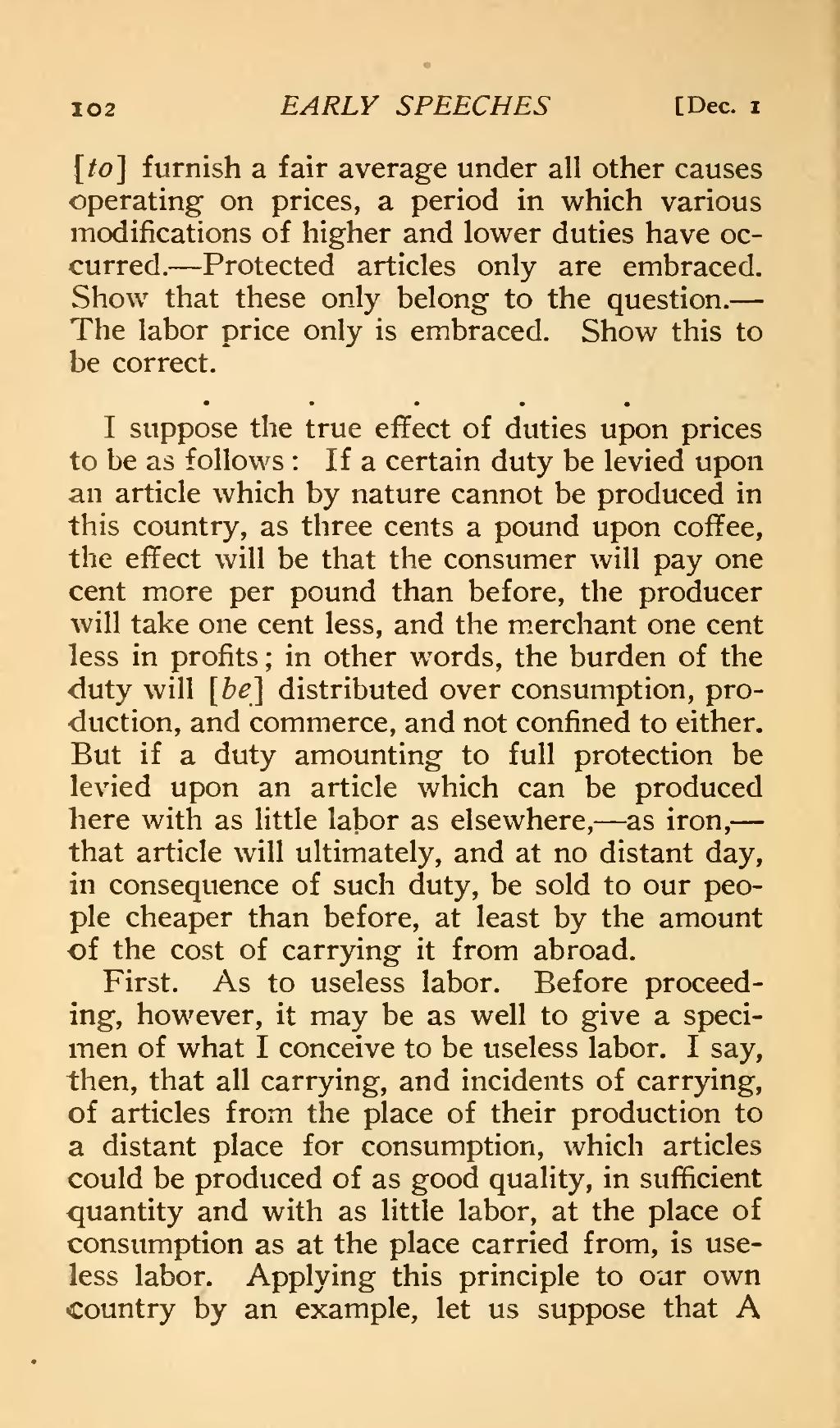[to] furnish a fair average under all other causes operating on prices, a period in which various modifications of higher and lower duties have occurred.—Protected articles only are embraced. Show that these only belong to the question.—The labor price only is embraced. Show this to be correct. ••••• I suppose the true effect of duties upon prices to be as follows: If a certain duty be levied upon an article which by nature cannot be produced in this country, as three cents a pound upon coffee, the effect will be that the consumer will pay one cent more per pound than before, the producer will take one cent less, and the merchant one cent less in profits; in other words, the burden of the duty will [be] distributed over consumption, production, and commerce, and not confined to either. But if a duty amounting to full protection be levied upon an article which can be produced here with as little labor as elsewhere,—as iron,—that article will ultimately, and at no distant day, in consequence of such duty, be sold to our people cheaper than before, at least by the amount of the cost of carrying it from abroad.
First. As to useless labor. Before proceeding, however, it may be as well to give a specimen of what I conceive to be useless labor. I say, then, that all carrying, and incidents of carrying, of articles from the place of their production to a distant place for consumption, which articles could be produced of as good quality, in sufficient quantity and with as little labor, at the place of consumption as at the place carried from, is useless labor. Applying this principle to our own country by an example, let us suppose that A
